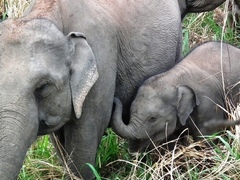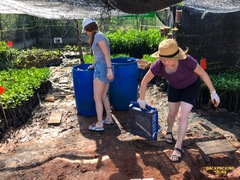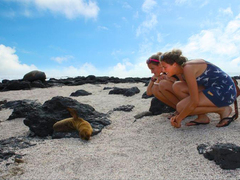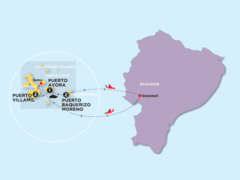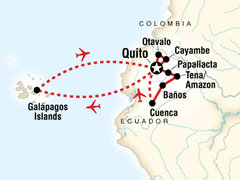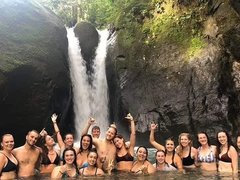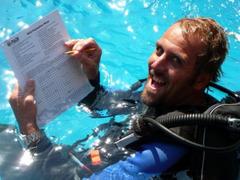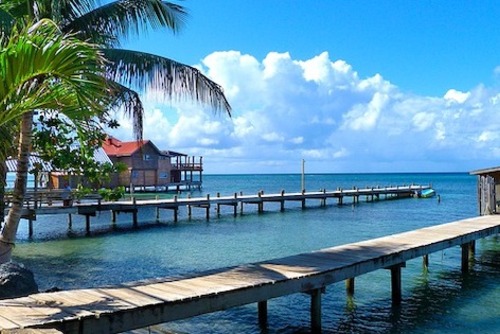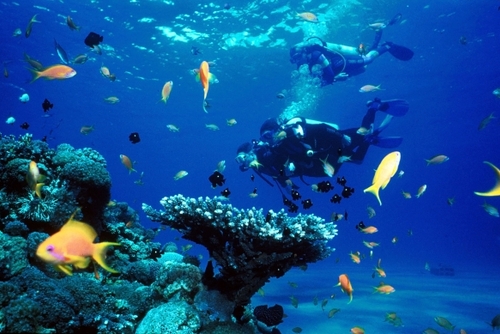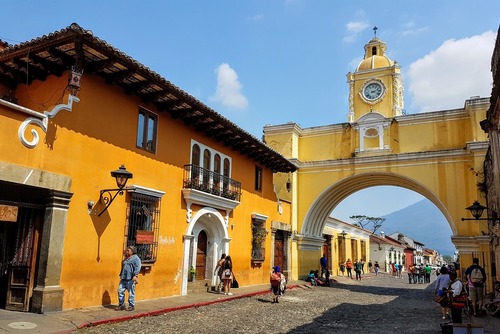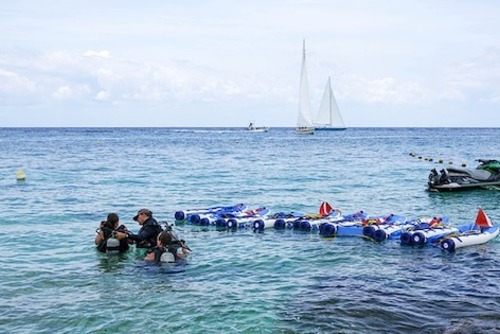Several other organizations, e.g. Honduran NGOs, have provided support for the project. More than 200 volunteers have also assisted with work in the field.
In addition to the preservation of the Utila Iguana and its critical mangrove habitat, other core goals of the project include sustainable development of the island of Utila (a popular destination for divers), as well as the creation of environmental awareness among the local inhabitants by providing information and environmental education.
The Utila Iguana has become emblematic for the conservation of the important mangrove habitat, the ecological significance and endangered status of which are often underestimated compared to rainforest and coral reefs.
Since 1998, the Iguana Station, built by the Zoological Society, has provided a home base for environmental education efforts, iguana breeding and ecological research. Most of the work has been done with the help of volunteers, who spend from 4 to 12 weeks at the Station.
Utila Iguana
Country: Honduras
Since 1994, the Frankfurt Zoological Society and the Senckenberg Nature Research Society have worked jointly to preserve the endangered lizard Ctenosaura bakeri, the Utila Spiny-tailed Iguana.
Update Listing
Apply to update this profile.
Learn more about advertising opportunities or contact us for details.
Utila Iguana Reviews

Related Opportunities
Elephant Conservation in Sri Lanka
- Oyster Worldwide
- Sri Lanka
- 1 week to 3 months
- 1000 to 3000+ £ Pound (UK)
Environmental Conservation: Thailand
- Backpacking Tours
- Thailand
- 1 week to 6 weeks
- 500 to 1500 £ Pound (UK)
Galapagos Experience: 3 Islands, 3 Weeks - Island Hop and Volunteer!
- LEAD Adventures South America
- Galapagos
- 2 weeks to 3 weeks
- 2000 to 2500 $ Dollars (US)
Galapagos Island Hopper
- Contiki
- Galapagos Islands
- < 1 week to 1 week
- 1250 to 1750 £ Pound (UK)
Highlights of Ecuador
- G Adventures
- Multiple Destinations
- 3 weeks to 3 weeks
- 2000 to 2500 £ Pound (UK)
Lake Baikal Conservation Project
- Fronteering
- Irkutsk, Russia
- 2 weeks to 3 months
- 1250 to 3000+ $ Dollars (US)
Volunteer, Service Learning & Internships in Costa Rica
- Osa Institute
- Costa Rica
- 2 weeks to 4 weeks
- 500 to 3000+ $ Dollars (US)
Weekend Scuba Diving Courses in Utila, Honduras
- Utila Dive Center
- Utila, Bay Islands, Honduras
- < 1 week to < 1 week
- 100 to 250 $ Dollars (US)
Related Articles
Scuba Diving in Honduras
Honduras is one of the best places to go scuba diving in the world and it is also one of the cheapest places to book ...
24/02/2015
Scuba Diving Promotions for 2025
Ever thought about training to becoming a PADI divemaster or scuba instructor? Utila Dive Center located in the beautifu...
19/01/2015

Best Hostels in Ecuador
Ecuador is a really unique country with incredible cities and sights. If you would like to book a trip to Ecuador che...
08/02/2015
Best Hostels in Guatemala
Mexico is one of the most popular destinations in Central America with incredible ancient ruins. If you would like to...
27/08/2018
Scuba Diving in the Caribbean
The Caribbean is one of the most popular scuba diving destinations in the world where you can find world class diving...
24/02/2015
Free Booking Gift
Get in touch to tell us if you book a trip, course or program found on our website and receive a free gift. It really...
25/06/2017

